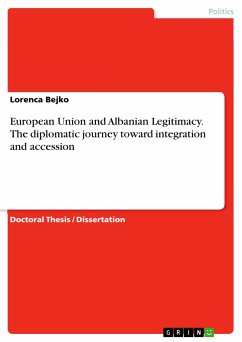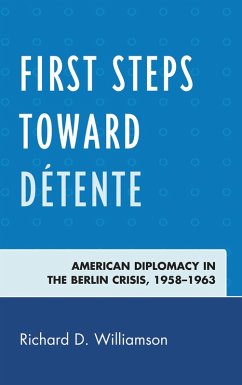
The Hero's Journey Toward a Second American Century (eBook, PDF)
Versandkostenfrei!
Sofort per Download lieferbar
58,95 €
inkl. MwSt.
Weitere Ausgaben:

PAYBACK Punkte
29 °P sammeln!
The hero's journey is a process of (re)discovery of the principles that make up the national identity of a country. These principles must then be applied in the formulation and implementation of foreign policy. For the seventh time in its history, America has discovered a grand synthesis of power and morality in projecting its resources and principles into the global arena. This makes possible a more assertive, moral foreign policy course in responding to a range of foreign policy challenges. Of these challenges, Salla asserts, the most profound in terms of the scale of human suffering around ...
The hero's journey is a process of (re)discovery of the principles that make up the national identity of a country. These principles must then be applied in the formulation and implementation of foreign policy. For the seventh time in its history, America has discovered a grand synthesis of power and morality in projecting its resources and principles into the global arena. This makes possible a more assertive, moral foreign policy course in responding to a range of foreign policy challenges. Of these challenges, Salla asserts, the most profound in terms of the scale of human suffering around the planet is that concerning violations of the rights of ethnic minorities. Ethnic conflicts and the humanitarian crises and massive human rights violations they generate form a foreign policy challenge that will preoccupy the minds of policy makers for much of the 21st century. NATO's intervention in the Kosovo crisis is the high water mark for America's seventh hero's journey. The intervention sends a decisive signal to all governments that the U.S. and its allies will no longer remain inactive in the face of states attempting to militarily repress the aspirations of their ethnic minorities. This moral interventionism can safely be extended well into the 21st century if policy makers wisely combine the moral principles and foreign policy challenges that make up both the Second American Century and America's (Seventh) Hero's journey. This provocative analysis will be of interest to all scholars, students, and researchers involved with the development of American foreign policy.













